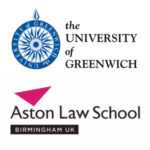Continue reading "Proprietary estoppel: What to expect"
Proprietary estoppel: What to expect

Evan Hughes (the deceased) left wills dated 7 August 2005 (the 2005 will) and 7 July 2016 (the 2016 will). Much of the deceased’s estate consisted of agricultural land, including 58 acres of farmland known as Yr Efail.
The deceased was survived by two children, Gareth and Carys, having been pre-deceased by a third, Elfed. Elfed was survived by a widow, Gwen, and three children: Stephen, Siôn and Geraint.
Under the 2016 will, but not the 2005 will, Yr Efail was gifted to Gareth.
Gareth claimed to propound the 2016 will in solemn form. Gwen and Stephen counterclaimed t...
A father made repeated promises to his son that he would inherit an undefined part of a farm, sufficient to enable him to operate a viable farming business on it, after the death of his parents. Relying on that promise, the son spent the best part of his working life on the farm, working at very low wages and accommodated in a farm cottage. After a deterioration in the relationship between the father and son, it proved no longer possible for the two to work together, and the son therefore moved out, and the father cut him out of his will.
The son claimed an interest in the farm as...
In 2007, the claimant gave her father (Ray) a sum of £150,000. The payment was a contribution towards a house (the property) that Ray intended to purchase with his wife, the first defendant.
The claimant alleged an agreement by which, in exchange for the payment of £150,000, Ray would leave his half-share of the property to the claimant and her brother.
The purchase of the property was completed using a TP1 transfer form. The form was signed by the third-party transferor and the box was ticked providing for the transferees, Ray and the first defendant, to hold the property ...

Continue reading "Proprietary estoppel: What to expect"

Continue reading "Proprietary estoppel remedies: Expectation and acceleration"
The deceased (E) died in March 2017 aged 84. The deceased’s last will was executed in July 2016 with the assistance of solicitors and after a capacity assessment was obtained from his GP. At the time of making his will, the deceased was suffering from moderately severe dementia and was grieving from the death of his eldest son (S) who had taken his own life in September 2015. The will changed the provisions of an earlier will in favour of the claimant (C), also a son of E, inter alia, leaving 58 acres of farmland to C.
The defendants were the sister, widow and eldest son ...

Continue reading "Proprietary estoppel: Widening the net"